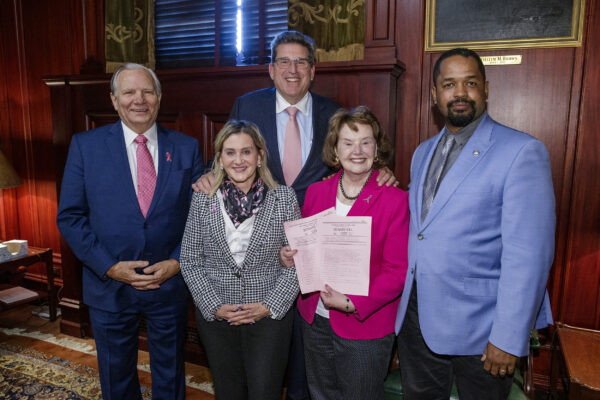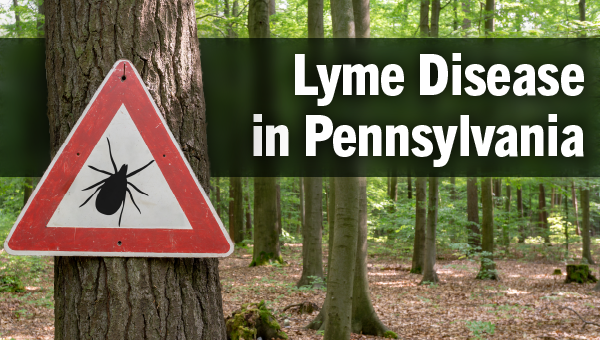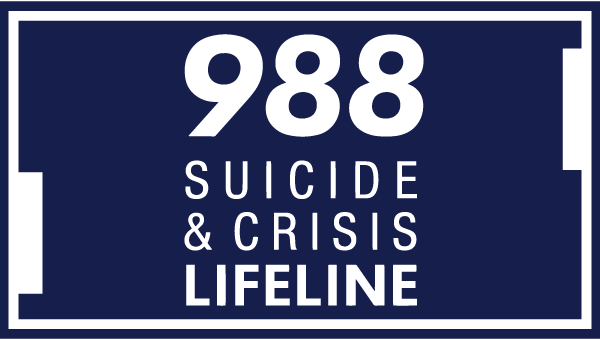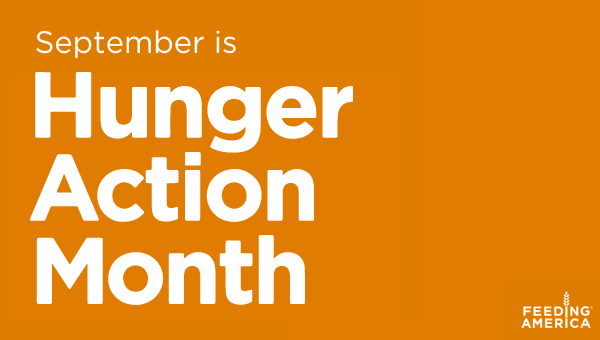
|
|
|
In this Update:
Senate Committee Votes to Remove Out-of-Pocket Costs for Life-Saving Genetic Testing and Breast Cancer Screenings This week I convened a meeting of the Senate Banking and Insurance Committee to consider three bills, two of which would remove out-of-pocket costs associated with genetic testing for hereditary breast and ovarian cancer syndrome as well as supplemental breast screenings for women with a high lifetime risk of breast cancer. Senate Bill 1330, sponsored by Senate Majority Leader Kim Ward (R-Westmoreland), requires health insurance policies to cover, without patient cost-sharing, genetic counseling and genetic testing for BRCA 1 and BRCA 2 gene mutations which are shown to increase a person’s chance of developing one of many hereditary cancers in his or her lifetime. Approximately 13% of all women will develop breast cancer sometime during their lives while up to 75% of women who inherit a BRCA gene mutation will develop breast cancer according to Penn Medicine’s Basser Center for BRCA. Men with BRCA mutations are also at increased risk of hereditary cancers, as nearly 25% will develop prostate cancer. Genetic testing is an important life-saving tool that often allows for earlier cancer screenings and preventive treatments and procedures. Senator Ward’s legislation removes any out-of-pocket cost barriers for individuals at increased risk of BRCA mutations based on clinical risk assessment tools as well as a personal or family history of breast or ovarian cancer. Senate Bill 1225, sponsored by Senator Mensch (R-Montgomery), requires health insurance policies to cover, without patient cost-sharing, an annual supplemental breast screening for women with a high lifetime risk of breast cancer. The legislation builds upon Act 52 of 2020 which had secured coverage for breast MRIs by eliminating patient copays, deductibles, and coinsurance for this preventive screening. This supplemental screening is necessary because of failed early detection by screening mammography among women with dense breasts and those at high lifetime risk of breast cancer. Identifying those susceptible to hereditary cancers and routine screening of all those at increased risk will help beat cancer early and before symptoms develop. By removing out-of-pocket costs for preventive healthcare services such as genetic testing and breast MRIs, we ensure all have affordable access to this lifesaving care. Senate Bill 1330 and Senate Bill 1225 now advance to the full Senate for consideration. DiSanto Hosts Veterans Appreciation Breakfast Nov. 4
Area veterans are invited to attend a Veterans Appreciation Breakfast on November 4 beginning at 8:30 am at the Scottish Rite Theatre in Harrisburg. Veterans and a guest may register here. Senate Expands Right to Know Law to State-Related Universities
Seeking to shine light on costs driving college tuition increases, the Senate approved legislation to expand Pennsylvania’s Right to Know Law to provide greater access to public records at state-related universities. Senate Bill 488 would create an online searchable database that details information about budgets and contracts approved by Penn State University, Temple University, the University of Pittsburgh and Lincoln University. The legislation also increases the amount of university personnel salary information subject to public disclosure. State-related universities receive more than $600 million in taxpayer dollars. Under Pennsylvania’s Right to Know Law, the Office of Open Records processes requests for documents from public agencies, such as the governor’s administration, legislative and judicial agencies and local organizations. The bill now moves to the House of Representatives for consideration. Among other measures passed by the Senate this week was Senate Bill 1203, which prevents companies from receiving state contracts, grants or tax credits if they are owned, controlled by, or acting on behalf of the Russian government. Hearing Highlights Ideas to Combat Lyme Disease in PA
Pennsylvania leads the nation in Lyme disease cases, with children making up the largest demographic affected. The Senate Health and Human Services Committee held a public hearing to increase understanding of tick-borne diseases, tick testing and mitigation, testing options for physicians and patients, and guidelines for treatment options. The panel heard testimony from Physician General and Acting Health Secretary Denise Johnson, as well as the director of the Tick Research Lab of Pennsylvania at East Stroudsburg University, an infectious disease physician, and the president of the PA Lyme Resource Network. Promise of Carbon Capture Technology in Pennsylvania Explored by Committee
The Senate Environmental Resources and Energy Committee held an informational briefing Tuesday on Pennsylvania’s potential as a carbon capture, utilization and storage hub. Wolf administration officials and the carbon capture and storage business opportunity manager for Shell USA, Inc. took part to discuss the region’s promise as a premier hub for both carbon capture and clean hydrogen. The Great Plains Institute, using data from a 2009 Department of Conservation and Natural Resources report, estimates the state could store about 2.4 billion metric tons of carbon dioxide underground. This is equivalent to the level of greenhouse gases emitted from 517 million gas-powered passenger vehicles annually, according to the U.S. Environmental Protection Agency. September is Suicide Prevention Month
Approximately 1.2 million adults attempt suicide annually in the United States, with more than 85% reporting having made a suicide plan prior to their attempt. In 2020, the most recent year that data is available, approximately 1,700 people died by suicide in Pennsylvania. Suicide Prevention Month provides an opportunity to remind Pennsylvanians that help is always available. This summer, the 988 Suicide and Crisis Lifeline officially launched nationwide, streamlining call and text access to the national lifeline that provides no-cost crisis response support 24 hours a day, 365 days a year. In addition to 988, many other resources also remain available to Pennsylvanians in need of support, including:
Rosh Hashanah Begins Sunday
Rosh Hashanah begins at sundown on Sunday and ends at nightfall Tuesday evening. For all who observe this Jewish holiday, I wish you a wonderful new year. Collecting Items for Area Food Banks Continues
Throughout Hunger Action Month, my district offices (addresses are listed below) are collecting non-perishable items to be given to food banks in our communities. Neighbors helping neighbors is the best form of charity and it’s one of the many traditions that make our country great. Please consider making a donation to help a family in need. |
|
|
|



2024 © Senate of Pennsylvania | https://www.senatordisanto.com | Privacy Policy |






